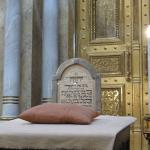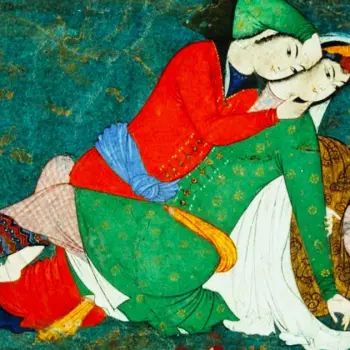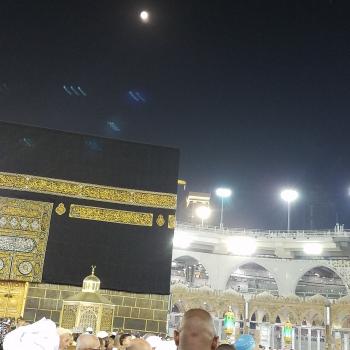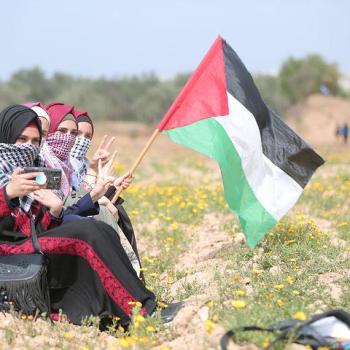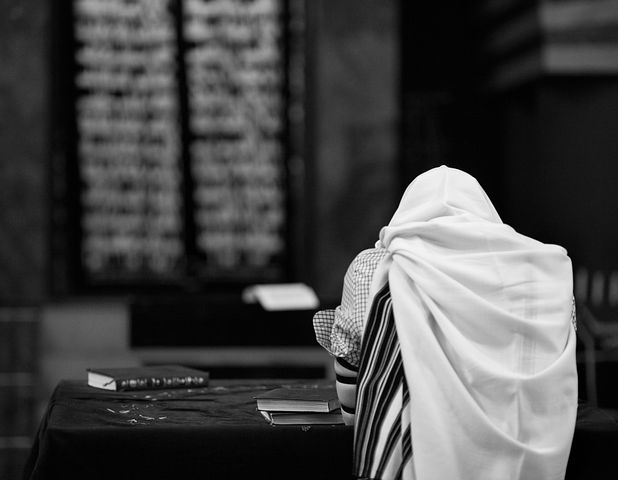 Biblical References on Daily Prayers/Salat
Biblical References on Daily Prayers/Salat
It should be noted that Salat is not mentioned by name in the Old Testament and the New Testament but there are references on regular prayers and ablutions (washing before prayers, known as wadu in Islam).
Jewish people to this day have three daily prayer services, or tefillah.. The first is the morning prayer, or Scacharit, then the afternoon prayer, or Minchah and the evening prayer, or Maariv. The background and the philosophy of the three daily prayers are found in the Telmud but the references can be found in the Hebrew Bible, and are traced back to the patriarchs, Abraham, Isaac and Jacob.
Evening, morning, and noontime, I speak and moan, and He hearkened to my voice. Psalms 55:18
Ablution/washing before prayers: The Torah describes Moses, Aaron, and the priests washing their hands and feet before entering the altar:
Next Moses placed the washbasin between the Tabernacle and the altar. He filled it with water so the priests could wash themselves. Moses and Aaron and Aaron’s sons used water from it to wash their hands and feet. Whenever they approached the altar and entered the Tabernacle, they washed themselves, just as the Lord had commanded Moses. Exodus 40:30–32
Not only were they supposed to wash, it was made a permanent law for their descendants:
Then the Lord said to Moses, “Make a bronze washbasin with a bronze stand. Place it between the Tabernacle and the altar, and fill it with water. Aaron and his sons will wash their hands and feet there. They must wash with water whenever they go into the Tabernacle to appear before the Lord and when they approach the altar to burn up their special gifts to the Lord—or they will die! They must always wash their hands and feet, or they will die. This is a permanent law for Aaron and his descendants, to be observed from generation to generation.” Exodus 30:17–22
Kneeling (Ruku) and prostration (Sujud) are considered signs of humility before God and part of the rituals of the Muslim prayers. These have been mentioned many times in the Bible, without using the specific terms. The following examples are of course not in the setting of a prayer but a more generic form of showing humility to God.
Moses and Aaron turned away from the people and went to the entrance of the Tabernacle, where they fell face down on the ground. Then the glorious presence of the Lord appeared to them. Numbers 20:6
Then Jesus went with them to the olive grove called Gethsemane, and he said, “Sit here while I go over there to pray.” He took Peter and Zebedee’s two sons, James and John, and he became anguished and distressed. He told them, ‘My soul is crushed with grief to the point of death. Stay here and keep watch with me.’ He went on a little farther and bowed with his face to the ground, praying, “My Father! If it is possible, let this cup of suffering be taken away from me. Yet I want your will to be done, not mine.” Matthew 26:36–39
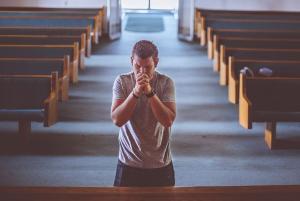 Praying regularly/prayer times: Though the regular prayers five times a day are not practiced by Christians today, there are some references to daily prayers performed at particular hours of the day in the New Testament.
Praying regularly/prayer times: Though the regular prayers five times a day are not practiced by Christians today, there are some references to daily prayers performed at particular hours of the day in the New Testament.
In Caesarea there lived a Roman army officer named Cornelius, who was a captain of the Italian Regiment. He was a devout, God-fearing man, as was everyone in his household. He gave generously to the poor and prayed regularly to God. One afternoon about three o’clock … Acts 10:1–3
It further goes on to describe Cornelius’s experience:
Cornelius replied, ‘Four days ago I was praying in my house about this same time, three o’clock in the afternoon.’ Acts 10:30 (This would roughly correspond to the mid afternoon Muslim prayer time.)
Now Peter and John went up together into the temple at the hour of prayer, being the ninth hour. Acts 3:1 (King James Version)
The New Living Translation’s version is as follows:
Peter and John went to the Temple one afternoon to take part in the three o’clock prayer service.
The Qiblah, or direction of prayers: In the early days of Muhammad, the first Qiblah was the Al Quds mosque in Jerusalem. The Qiblah was changed to the Ka’aba in Mecca according the Qur’anic verses 2:142–144. The Bible points out that when Solomon prayed to the Lord, he used to face toward the temple in Jerusalem.
May you watch over this Temple night and day, this place where you have said, “My name will be there.” May you always hear the prayers I make toward this place. May you hear the humble and earnest requests from me and your people Israel when we pray toward this place. Yes, hear us from heaven where you live, and when you hear, forgive. 1 Kings 8:29–30
Daniel, another Jewish prophet, used to pray regularly (though three times a day, according to the Bible) and faced Jerusalem during the prayers:
But when Daniel learned that the law had been signed, he went home and knelt down as usual in his upstairs room, with its windows open toward Jerusalem. He prayed three times a day, just as he had always done, giving thanks to his God. Daniel 6:10
The ritualistic differences aside, the essential ingredient of these daily prayers is very similar- to communicate with God, supplicate, reverence and being in awe of God on a regular, daily basis as a constant reminder of our duty to God, and by reference to His creation.
Adapted from my book, The Three Abrahamic Testaments



